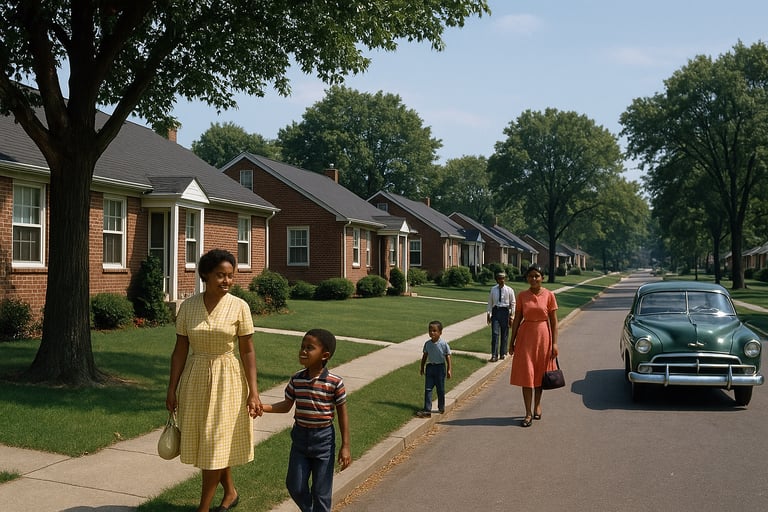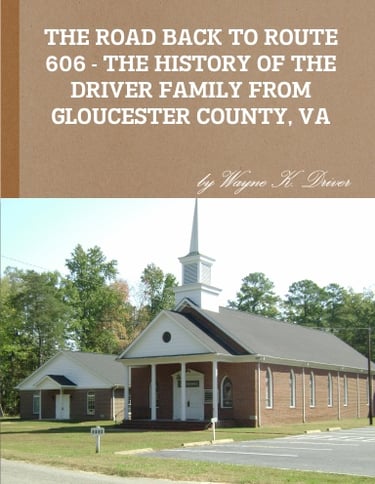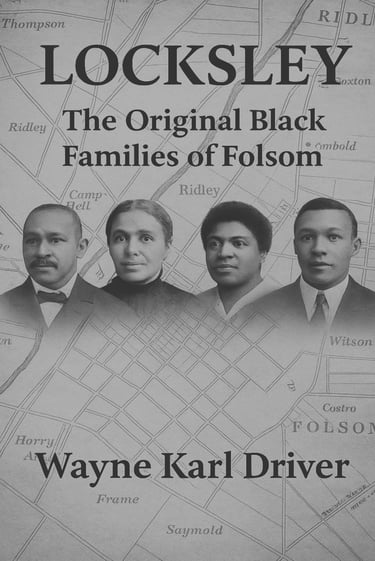A Place Called Folsom
Have you ever heard of a place called Folsom, Pennsylvania? For most, it’s just another dot on the map, but for me, it was home—the place where my worldview was planted, nurtured, and shaped. As I began exploring genealogy years ago, I found myself drawn back to this community, and in doing so, I discovered a history worth sharing.
FOLSOMLOCKSLEYVILLAGEAFRICAN AMERICA
Wayne Karl Driver
9/4/20252 min read


Discovering Locksley
About fifteen years ago, after catching the genealogy “bug,” I started wondering about the neighborhood where I grew up. I knew it was special, somehow different from other places I had come across while researching family histories. My goal was simple: trace the families I knew back as far as the archives would allow.
Along that journey, I stumbled upon something unexpected: the two blocks predominantly inhabited by African American families had once been farmland purchased by a developer who named it Locksley—a name I had never heard until then. That discovery became the inspiration for my semi-completed book, Locksley: The Black Families of Folsom, Pennsylvania.
My research stretched from the 1850s through my own childhood memories, weaving together the stories of families with deep multi-generational roots and others who had migrated from Philadelphia in search of opportunity. What emerged was a portrait of resilience, shared values, and the quiet yet powerful ways in which community shapes us.
More Than Just Research
Alongside the historical discoveries, this project taught me just as much about myself as it did about my hometown. Researching genealogy is not just about dates and names—it’s about persistence, patience, and people. Looking back, here are some lessons I learned the hard way:
Plan before you dive in. I rushed into this project with excitement but little structure. As a professional project manager, I should have known better. Most projects fail not from lack of effort, but from lack of planning.
Set realistic targets. I often lost focus, chasing details that could have been saved for a follow-up project. Stick to your plan, and don’t let distractions derail you.
Document everything. One reason I haven’t formally published my book is that I didn’t carefully document my sources or adhere to professional standards. Early documentation makes all the difference.
Find support. Living far from Pennsylvania, I missed out on the opportunity to work with local historical societies and genealogists who could have provided encouragement and access to valuable records. Having a support system matters.
At times, the project left me burned out. Between raising a family, commuting long hours, and balancing professional commitments, there were moments I wanted to set it aside completely. And yet, even with its unfinished edges, the project gave me something invaluable: a deeper knowledge of my “village” and an appreciation for the families who built it.
Passing the Torch
Will I ever return to finish Locksley the way I once envisioned? Probably not. Today, I find more joy in working one-on-one with people rather than chasing a single big project. Still, I know the foundation has been laid for others to build upon.
I often think of the saying, “It takes a village to raise a child.” In Folsom, that was true—but I’d add one more thought: the village works best when it shares the same values. Locksley was such a place, and its story deserves to be remembered.
So I ask you: Have you ever bitten off more than you could handle? What lessons did you learn from the journey?
If you’d like to take a peek at my draft copy of Locksley: The Black Families of Folsom, Pennsylvania, I’d be happy to share it. Just use the contact form at the bottom of this page—I’d love for you to be part of keeping this history alive.
Disclaimer: These posts were edited with AI assistance for clarity. All genealogy research and conclusions are my own.
Connect With Us
To stay informed about the latest research and discoveries, connect with us on our social media channels.
© 2025. All rights reserved.
Let's Keep In Touch




